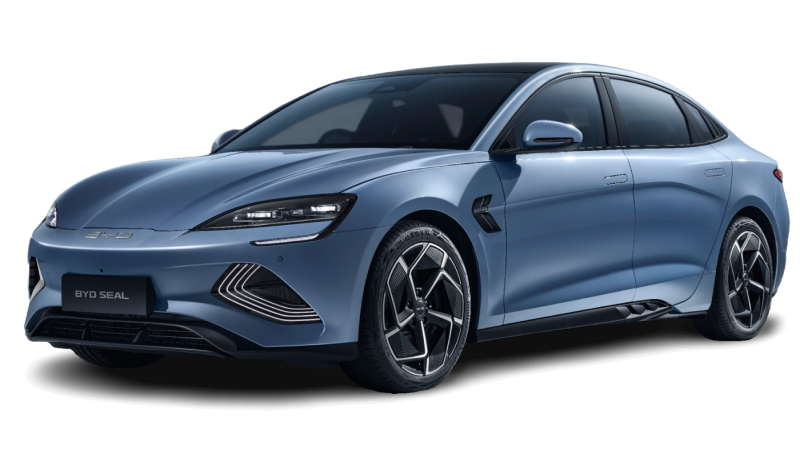BYD’s Bold Drive: From Market Leader to Luxury Challenger

China’s electric vehicle powerhouse, BYD, is making waves again—this time not only by outpacing Tesla in global EV sales, but by venturing boldly into the luxury car segment. At the heart of this strategic leap is the newly unveiled Denza Z, a sleek, high-tech model introduced at Auto Shanghai, the nation’s largest automobile exhibition. With this launch, BYD is signaling its intent to rival Western luxury giants like Porsche and Mercedes-Benz.
The Denza Z, showcased under dramatic lights after being concealed beneath a black cover, was introduced with great fanfare. BYD founder Wang Chuanfu, a highly respected entrepreneur in China, was present for the unveiling. The Auto Shanghai show floor was alive with rival automakers showcasing their latest innovations, vying for attention through elaborate presentations and new model announcements.
As the global automotive industry grapples with geopolitical uncertainty, especially due to trade tariffs from the United States, China’s EV sector has emerged as a key battleground. Foreign manufacturers are looking to rethink strategies, while Chinese brands like BYD are seizing the moment to strengthen their dominance, particularly in the domestic market.
BYD has solidified its leadership in China’s electric vehicle market, overtaking Tesla in sales and expanding its influence with aggressive pricing and frequent product updates. Meanwhile, Tesla recently reported a 20% drop in vehicle sales and a 71% plunge in net income, citing challenges such as trade tensions and negative public sentiment toward CEO Elon Musk.
The Denza brand, once a joint venture with Mercedes-Benz and now fully owned by BYD, recently launched in Europe. While BYD’s core identity is associated with affordable electric vehicles, Denza represents its ambitions in luxury. The Z model has already stirred excitement, with earlier leaks and promises of advanced features and premium quality fueling anticipation.
According to auto analyst Tu Le of Sino Auto Insights, BYD thrives on its relentless offensive strategy—frequent launches, innovation, and a highly efficient cost structure that allows it to outprice competitors. This poses a significant threat to brands like Porsche, which recently reported a 28% sales decline in China, citing ongoing economic challenges.
Although pricing for the Denza Z hasn’t been disclosed, BYD’s recent high-end SUV, the Denza N9, starts at 389,800 yuan (approximately $53,500). In contrast, its more economical Song Plus SUV is priced at just $18,500. This broad range reflects BYD’s dual-market approach—affordable innovation alongside luxury expansion.
BYD’s luxury ambitions aren’t limited to Denza. The automaker also sells high-end electric vehicles under its Yangwang brand. The new U8L SUV, part of this premium lineup, was also revealed at Auto Shanghai and recently crossed the milestone of 10,000 units sold, signaling strong consumer interest in ultra-luxury EVs.
In the first quarter of 2025 alone, BYD sold over one million new-energy vehicles, marking a 60% surge in year-on-year growth. These figures include battery electric, hybrid, and commercial models, showcasing the brand's wide appeal and diverse product strategy in the evolving auto market.
Despite international obstacles such as tariffs imposed by both the U.S. and the European Union, BYD is pushing ahead with global expansion. The company plans to double its overseas sales to 800,000 vehicles by 2025 and aims to maintain its price competitiveness by assembling cars in local markets, according to its chairman.
Technological innovation continues to be a key pillar of BYD’s strategy. In February, the company launched “God’s Eye,” a driver-assistance system intended to rival Tesla’s Full Self-Driving software—available at no extra cost on most models in China. Shortly after, it introduced a new charging technology that adds 250 miles of range in just five minutes.
Yet, the competitive landscape remains fierce. This week, CATL, China’s largest battery manufacturer, unveiled a new battery offering up to 320 miles of range—surpassing BYD’s latest achievements and intensifying the race for EV supremacy within China.
In terms of financial performance, BYD’s revenue hit $107 billion in 2024, a 29% increase year-over-year, with 4.27 million vehicles delivered. This contrasts sharply with Tesla’s 2024 figures of $97.7 billion in revenue and 1.79 million vehicle deliveries—a decline in annual growth for the first time.
Tesla's market share in China has shrunk to 6.1%, reflecting the immense pressure it faces from domestic competitors. While Tesla focuses solely on battery-powered vehicles, BYD’s hybrid offerings give it a broader reach. Interestingly, even BYD’s battery-only EV sales—1.76 million units—came close to Tesla’s total output.
From affordability to opulence, BYD is reshaping the electric vehicle market. With an aggressive growth plan, robust product development, and a calculated push into luxury, the Chinese automaker is not just keeping pace with the world—it’s setting the rhythm for a new era in global automotive competition.
What's Your Reaction?














:format(webp)/cdn.vox-cdn.com/uploads/chorus_image/image/70136881/1347078605.0.jpg)





